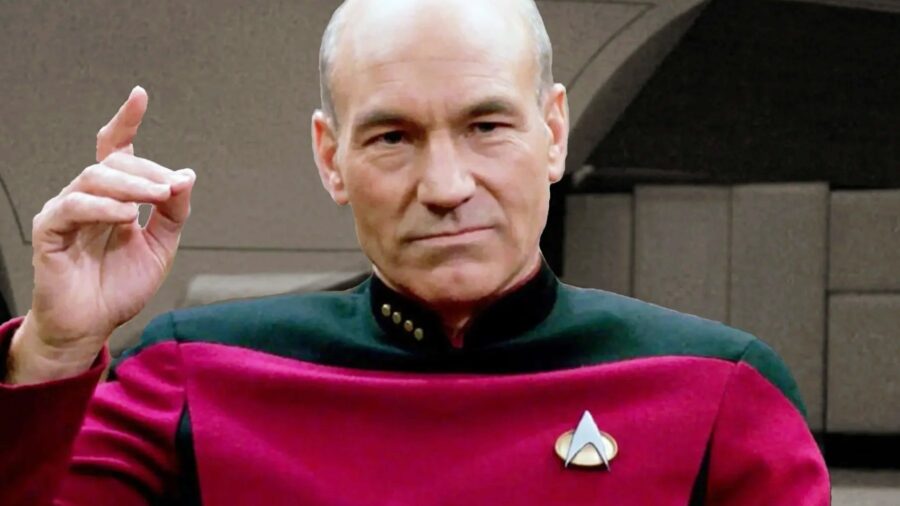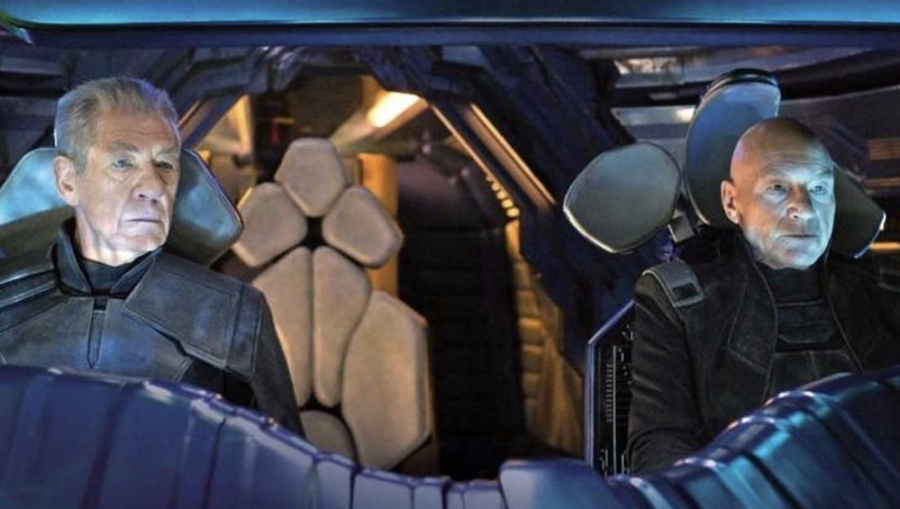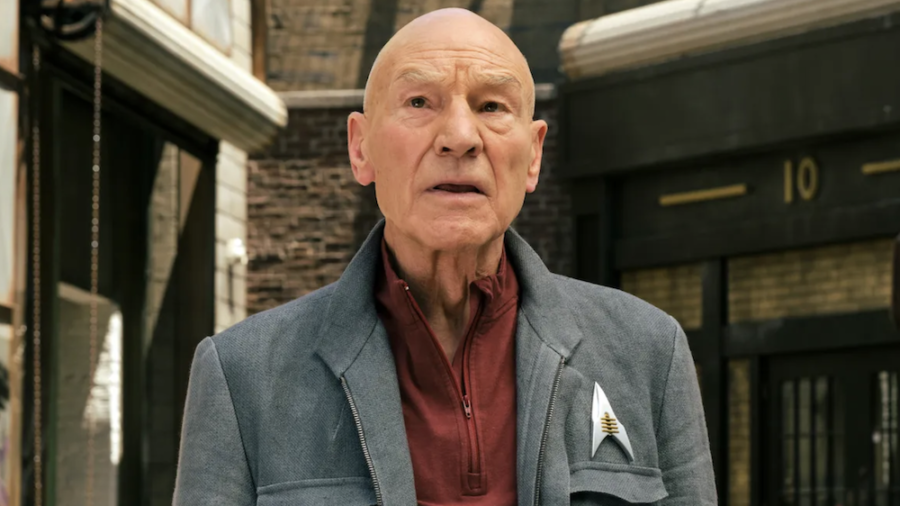Patrick Stewart Was Told Not To Accept Star Trek By His Greatest Co-Star

Although Sir Patrick Stewart has had several notable roles in his career, he is probably best known as Captain Jean-Luc Picard. He portrayed the character for seven seasons of Star Trek: The Next Generation, three seasons of Star Trek: Picard, and in four feature films. However, the actor was hesitant to accept the role, and Sir Ian McKellen compounded these reservations.
Patrick Stewart made the revelation in his new memoir, Making It So, in which he elaborated on being offered a lucrative salary for Star Trek: The Next Generation. Stewart was so shocked by the figure he asked for it to be repeated. “Nope, I thought, I’ve never seen numbers like that in the vicinity of my name,” Stewart wrote via Slash Film.
Patrick Stewart says that friend Ian McKellen tried to prevent him from signing on to Star Trek: The Next Generation for six seasons
However, Patrick Stewart was required to commit to Star Trek: The Next Generation for six seasons. While a salary increase came with every season, the actor was shocked by the duration of the contract. His agent and friends encouraged him to sign, but there was a single dissenting voice.

“Ian McKellen was not yet a close friend, but we had gotten to know each other casually in the Royal Shakespeare Company, where our tenures overlapped, yet we somehow were never cast in the same show.”
“When I told him I was going to sign the contract, he almost bodily prevented me from doing so,” Patrick Stewart wrote. He added that McKellen said he had “too much important theater work to do” and shouldn’t “throw that away to do [television].” Although Stewart trusted McKellen’s advice, he decided he might get another chance to lead an American show, so he took the Star Trek deal.
Patrick Stewart explained how McKellen “shook his head sadly as if I were enlisting in the army, but wished me good luck and gave me a big hug.” Stewart ultimately made the right decision and takes great pleasure in mentioning that to his friend. Star Trek: The Next Generation not only exceeded expectations in terms of its longevity, but it also earned 18 Emmys Awards.
Patrick Stewart explained how McKellen “shook his head sadly as if I were enlisting in the army, but wished me good luck and gave me a big hug.”
Patrick Stewart portrayed Captain Jean-Luc Picard, the distinguished leader of the USS Enterprise-D in Star Trek: The Next Generation, for seven seasons from 1987 to 1994. Stewart’s portrayal of Picard garnered widespread acclaim and cemented his status as one of the most beloved characters in the Star Trek universe. The series explored complex themes and ethical dilemmas while following the adventures of Picard and his crew.

After The Next Generation, Patrick Stewart reprised his role as Captain Picard in four Star Trek feature films. The first was Star Trek: Generations in 1994, followed by Star Trek: First Contact in 1996, Star Trek: Insurrection in 1998, and Star Trek: Nemesis in 2002. These films allowed fans to continue following Picard’s adventures on the big screen.
In 2020, Patrick Stewart returned to his iconic role in the Paramount series Star Trek: Picard. The show takes place years after the events of The Next Generation and explores Picard’s later life as he becomes involved in new galactic challenges and mysteries. Stewart’s reprisal of the character was highly anticipated and well-received by longtime fans and new audiences.
Despite the success of Picard, it took some convincing before Patrick Stewart agreed to return to the Star Trek franchise. Although he eventually agreed, Stewart had three conditions on which his return was contingent. These are also detailed in his memoir. The first was that Picard would not be a revival of The Next Generation as he wanted the character in a new setting around new people.
Patrick Stewart did not want Picard to be serving in Starfleet, and the character was not to wear any uniform or badge. Finally, the actor did not want the series to run for more than three seasons. “It was clear to me that the writing team was not entirely thrilled with these conditions, but basically, they were all agreed to,” he wrote. “The no-uniform rule was the toughest one for them to stomach, for some reason, and more than once, I was asked to reconsider my hard line. I stuck to my guns.”











